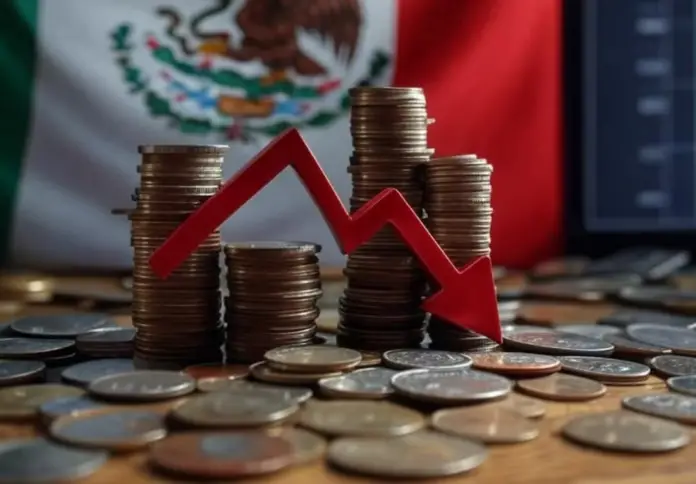In the framework of the Economic Perspectives 2025 Seminar, organized by the Autonomous Technological Institute of Mexico (ITAM), leading specialists discussed the economic challenges that Mexico could face in the near future.
Alejandro Werner, founding director of the Georgetown Americas Institute, predicted that Mexico will enter a recession this year, pointing out that historically changes in government tend to cause a contraction of economic growth of about two percentage points.
In 2025 we are going to have a recession, at the end of the day, in every change of government we have had a reduction in growth of almost 2 percentage points, we are going to have it again, this is exacerbated by the United States’ negotiation with the reform of the Judicial Branch, it is very likely that we will see negative growth or two or three negative quarters,” said Werner.
What is a recession?
A recession is a period of economic contraction that is characterized by a generalized and sustained decrease in the economic activity of a country.
This is usually reflected in a fall in the Gross Domestic Product (GDP) for at least two consecutive quarters, increased unemployment, reduced consumption and lower investment.
Recessions can be caused by various factors, such as restrictive monetary policies, financial crises, political uncertainty or external shocks, such as changes in global trade.
During these periods, governments usually implement fiscal and monetary measures to mitigate the negative effects and reactivate the economy.
Tax reform: an urgent need, according to Werner
The economist highlighted the urgency of carrying out a tax reform in Mexico, arguing that this would be key to addressing structural weaknesses and possible external shocks.

Werner suggested that the government should consider proposals such as those proposed by the former Secretary of Finance, Guillermo Ortiz, which include modifications to the property tax, VAT and ISR.
Given our fiscal weakness, given the risk of losing the investment grade, I think that in this case Mexico could be entering into the concept of… expansionary effect and fiscal contraction,” he explained, referring to the combined effects of fiscal consolidation measures in a context of lower economic growth.
He also criticized the monetary policy of the Bank of Mexico for having raised interest rates to 11.25 points, describing this measure as a mistake that could have worsened the current economic outlook. Werner proposed a strategy to gradually lower rates, combining it with pre-announced interventions in the foreign exchange market to reduce volatility and stabilize markets.
Tariffs, exports and fiscal discipline
Another factor of concern pointed out by Werner is the possible imposition of a 25% tariff on Mexican exports by the United States, in the event that Donald Trump returns to power.
Faced with this scenario, he suggested that the Mexican government should implement a support program for exporting companies through development banks and establish guarantees to mitigate the adverse effects of these trade measures.
Finally, Werner acknowledged that, although the previous six-year term of President Andrés Manuel López Obrador was characterized by fiscal discipline for much of the period, recent years left a significant deficit and inertial pressures on public spending, which adds complexity to the economic outlook that Mexico will face in 2025.
Source: elmparcial




